
Brian's Run Pod
Welcome to Brian's Run Pod, the podcast where we lace up our running shoes and explore the exhilarating world of running. Whether you're a seasoned marathoner, a casual jogger, or just thinking about taking your first stride, this podcast is your ultimate companion on your running journey.
Join us as we dive deep into the sport of running, covering everything from training tips and race strategies to personal stories and inspiring interviews with runners from all walks of life. Whether you're looking to improve your race times, stay motivated, or simply enjoy the therapeutic rhythm of running, Brian's Run Pod has something for every runner.
Brian's Run Pod
From Reluctant Runner to Ultra-Marathoner: Merili Freear's Inspiring Journey
What if the very activity you dreaded in school could one day become your sanctuary? Join us as we uncover Merili Freear's incredible transformation from an exercise-averse student in Estonia to a passionate runner in England. Merili opens up about her early disdain for physical education, her reluctant beginnings in walking and running with her sister, and the moment in April 2020 that sparked a profound change in her life. Discover how she shifted her focus from chaotic, weight-loss-driven workouts to a mindful, joyous running routine that enhanced her mental clarity and overall well-being.
The COVID-19 lockdowns were challenging for everyone, but Merili found an unexpected silver lining. Confined at home, she turned to running as a form of mental and physical relief. Listen to her touching reflections on the mixed emotions of navigating loss and growth during a global pandemic, and how her new running routine led to unexpected benefits like improved fitness, personal empowerment, and a deeper appreciation of local nature. We'll also touch on the early stages of Merili's training for longer distances, including the hurdles she faced and overcame.
Running isn't always smooth; it comes with its share of setbacks, especially injuries. In this episode, Merili shares her insights on the crucial balance between physical and mental resilience in the face of running-related injuries. Drawing from key books and her own experiences, she emphasizes the importance of small wins, a positive mindset, and cross-training. Hear her inspiring story of running an ultra-marathon with insufficient preparation, and how these challenges led her to reinvent herself and refine her training methods. This episode is a must-listen for anyone looking to find strength and growth in the face of physical and mental obstacles.
Just Run by Merili Freear
Running Free of Injuries
Brian's Run Pod has become interactive with the audience. If you look at the top of the Episode description tap on "Send us a Text Message". You can tell me what you think of the episode or alternatively what you would like covered. If your lucky I might even read them out on the podcast.
Instagram
So you're thinking about running but not sure how to take the first step. My name's Brian Patterson and I'm here to help, and welcome to Brian's Rompod. Well, hey there, runners and fitness enthusiasts, welcome back to another exciting episode of Brian's RunPod. I'm your host, brian Patterson, and today we've got a truly inspiring guest lined up for you Again at Brian's RunPod. First we have an author, and if you've ever wondered how to turn a challenging situation into an incredible journey, then stick around, because today's story is all about resilience, determination and the love of running. She has just launched her own book Just Run my Love for Running and how the Impossible Becomes Possible.
Brian Patterson:Joining us is Merili Freear, whose running journey began in April 2020 during England's first COVID-19 lockdown. Since then, she's conquered thousands of miles, including two marathons, two ultramarathons. Originally from Estonia, Merili now calls rural Lancashire, England, her home, where she lives with her supportive family and her spirited schnauzer, jack. Running has become more than just a hobby for Merili, and it's a way to maintain her mental well-being and push her own boundaries. Her mission to inspire and empower others and to discover and unlock their full potential. And to discover and unlock their full potential. We'll be diving into Merili incredible story and discussing her achievements and exploring how running has shaped her life in ways she has never imagined. So lace up those running shoes, folks, and get ready to be motivated. So welcome to the podcast Merili.
Merili Freear:Hello Everyone. You for having me, brian, great that's fantastic.
Brian Patterson:I'm really pleased to be here, right? I just wanted to start. Usually with a lot of my interviews, I usually start from right at the beginning as to what sort of exercise was or what relationship you had with exercise growing up at school in Estonia.
Merili Freear:Yes, my relationship with exercise wasn't very good. I didn't like physical exercise at school. I really struggled with it.
Merili Freear:And yeah, I could say I even hated these classes, so you wouldn't think from that that I could ever become a runner. But as I got older when I was around 12 or 13, we started to go to aerobics classes with my sister and it was quite far away. So instead of taking a bus, we walked, and I'm a keen walker to this day. I always love to explore new places when walking. If I can't run because now I also run when we go to holidays, anything like that but back then, yeah, walking was the main activity, but we started to add little runs to those walks. We went just out for maybe one or two miles and it was more like fair weather running. So if the weather was cold we didn't go.
Merili Freear:And we did it, you know all for the wrong reasons, mostly to lose weight and yeah but I have fun memories looking back to those runs with my, with my sister, and late in my 20s I even took part of some of the races. But my, my running back then was really chaotic. I maybe signed up for the race because all the colleagues were going and and in Estonia it's very much supported all sports by your workplaces and quite often you get either discounted entry or free entry from your workplace to go for those races. And then I did a few of them with colleagues and my training was mostly just going for a few runs a few weeks before the race and then after the race was done then I stopped and so I really didn't consider myself a runner back then yeah, but when I started, yeah when I started during the lockdown 2020.
Merili Freear:Then then I after that I not right away, but gradually I I started to think myself as a as a runner, because I was doing it more for the right reasons. I did it for my mental health, I did it to feel good. It was never an issue that I would run to lose weight or that I could have cake or anything like that, because I think a lot of people start running just to you know that they could eat more or anything like that, although if it works for them, it's not wrong but at the same time, it might not be sustainable because you just don't do it for the right reasons, you don't do it for the enjoyment of it. It's more like a punishment.
Brian Patterson:Yes, yeah, yeah, yes, exactly. I mean just going back to at school. I mean, is there kind of, like you know, a predominant focus within the curriculum at school in Estonia that you do? You know, you must do certain amounts of exercise a week or something like that.
Merili Freear:Yes, there were a certain amount of exercise, but there was also, like you needed to run, like, let's say, 30 meters or 60 meters on certain time and do it. Then you got a bad grade. Oh right, so it. Then you got a bad grade.
Brian Patterson:Oh right, so it's linked to your overall grade.
Merili Freear:I was a good student. I was an A student, but I got a bad grade in PE and it got me really down because you know you have all as and then suddenly your PE is like C. So, it just doesn't come across.
Brian Patterson:Oh, your average comes down yeah.
Merili Freear:Yeah, because there were like things that I was able to get good grades, but yeah, I was never good with running 30 metres or 60 metres or a high jump or anything like that. But I think it's wrong that these kind of activities are graded. I think it should be like everybody has their talents in different places.
Merili Freear:And so I think, it should be more focused on that. I don't know if it's any more like that because, well, I'm 42 now, so it was a long time ago, but at the time, yeah, that's how it was yes, yeah, but um, maybe, um, I think the I mean, I I think it depends on, you know, the type of teacher that you have.
Brian Patterson:I know when I was at school, there was a teacher who was very enthusiastic about his passion for this particular sport and I think if you have someone like that, that kind of translates itself to whoever they're teaching. I mean, he was into basketball and we just love basketball and he was very good at it and that kind of thing, whereas you know.
Brian Patterson:I think that has a lot to do with it for me. I don't know if they're passionate about something, but if it's just kind of a bit you know I have to go through it then maybe it's not a good way of, let's say, getting the kids involved or something like that. It might be different.
Merili Freear:Yeah, it seemed to be that a lot that you just go through the curriculum. Yeah, there were some activities that I enjoyed, but it was a lot of pressure, you know, to perform well and if you just wasn't capable of doing it, then it's just. You know, not everybody can run as fast as it's required.
Brian Patterson:So moving on, I mean To this mean today.
Merili Freear:I don't like fast running, so oh, don't you I much, I much rather run 20 miles than quick 5k oh my god.
Brian Patterson:Okay, during covid, did you feel that that your mental health suffered, or was it just like you said it? Was it just something that you know?
Merili Freear:taking up running was just something so you can get out of the house and at at the time when I, when I went for that first run, my, my son, was. He wasn't even free yet, was just going to turn three in a few weeks and and I, I just felt that we were trapped in the house, we weren't able to do any of our normal activities and I felt really challenging. It was challenging time because right now, looking back to it, you think that well, it wasn't that bad, but actually it was it. It was. You weren't able to see any of your friends, any of your family.
Brian Patterson:I know, I know.
Merili Freear:You. You had a lot of worry, unknown about everything and trying to explain for for your nearly three year old that what's what's going on and and why we can't go on any of those places that that he likes, why we can't go to the playground, because you weren't even allowed to go to the playground to start with.
Brian Patterson:So yeah, it was like um, I don't know, it's like a different time period whenever my wife and I we talk about it and it was like it was like a piece of it was like history which is, you know, and you kind of like you, you kind of went through it and you know, you look today, it's, it's so different, you know it's, it's very different.
Merili Freear:It is. I must say that some of the good things came from that period as well, because I think people were forced to be more creative when the restrictions eased a bit. Then we started to look for more opportunities to explore the local woods and I spent hours every week with my son there and I thought it was like really good learning opportunity. We were able to talk about all the plants and you know it was outside.
Merili Freear:I was outside and a lot of those places, if I wouldn't been forced to do it I might not never explored or discovered. So in that sense it was that good part of the covid and for me personally I I don't think if I would have wouldn't been forced to go out for running that I would have started. Maybe I would, but it was the driving force and and running has changed my, my life a lot and and I have gained so much from it, so right for that I'm ever so grateful.
Merili Freear:On the bad side of it, my father died of covid oh right, I'm sorry to hear that yes, so yeah, yeah it really did, did hit close to home, so yeah yeah, yeah, yes, that's right, that's right.
Brian Patterson:So, and also I mean so you, in a way, you've got it was quite a positive experience for you because so during COVID, I know, when I used to go walk around I was saying, yeah, maybe I should do a 10k program or, you know, do something like that, and that kind of spurred me on to to do that, because you kind of had the time to do it. Is that how it felt for you that you know, you thought you could kind of explore not running just as an exercise, but kind of as the sport itself yes, definitely, because I, when I looking, looking back to it and I I seem to have a lot more time to run back then than I have now.
Merili Freear:It's more trickier to fit it in. But then it was like I went out for an evening run and I felt that, okay, instead of six miles, maybe I go and do 10. And I could do that because, you know, I normally went when my son had gone to bed and so I didn't have to rush back, and during the summertime it wasn't dark or anything like that, and during the weekend runs I just because I went out quite early in the morning, so I just did what went out quite early in the early in the morning, so I, I just did what I, what I felt was right, and it felt really empowering.
Merili Freear:I, because I I never seen myself as as a sporty person and then then you're suddenly able to go out and run quite good distances and it made me feel good. It made me feel that maybe I can do more things than just running, that if it's something that I never thought that I could possibly do, I'm able to do, then maybe it applies for the other areas of my life as well yeah definitely gave me, so in those early days did you find I mean your fitness kind of exponentially, you know, improve so yes, you know
Merili Freear:really quickly um it, it, it went really quickly. I'm I'm surprised at that, because first run I went out I was dead slow, but uh yeah I run 4k, so it's it's it a very decent distance for somebody who is not used to running. Yes, a few weeks before I actually went outside for running, I did some running on a spot and running on the garden, but that was like very little bits and that was just only for a few weeks.
Brian Patterson:Right, okay.
Merili Freear:But still, 4k is quite a good good distance, I would think, even if it's that slow yeah, well you're.
Brian Patterson:You know you're nearly doing parkrun, so, and were you doing it just once a week, or was it that was there? Um, you're doing a couple of times a week to start with.
Merili Freear:yeah, I went a few times, and then I started to look into what I actually should be doing. And then, well, I had this idea that maybe I could run half marathon, and so I started to look for the plans for the half marathon.
Merili Freear:But, a lot of the plans were just you have to run like four, five, six times a week, and I just thought that I can't really do that. So I found a training plan that required running three times a week, and so I, so I started to loosely follow it and yeah, and then I. Then I just didn't listen to the plan and and did a stupid thing and just went out and run a half marathon, which I wouldn't really recommend because you could get injured and and yeah all those things, but at the time it I I just felt that I really needed it and it gave me such a, such a boost because I, yeah, it's, yeah, it's really stupid.
Merili Freear:I wouldn't recommend it to everybody else.
Brian Patterson:But because you use one of my favourite apps, runkeeper. I don't know.
Merili Freear:I like that app because yeah, I used Runkeeper because I didn't have a sports watch back then and that worked really well. So when I run that first half marathon I didn't know much about the pace. I thought that it's giving me my kilometer or mile times, but it was actually my average pace that it was saying and I couldn't even figure out what it was saying. But it's all the learning curve when you start.
Merili Freear:I think running community helped a lot, because I joined Facebook groups and then you learn from there. Reading other people's posts, you could ask some advice and that definitely helped me to push forward and learn what I need to do.
Brian Patterson:From a I don't know. I was just thinking here that, because suddenly you kind of latched on to running, do you think there was kind of a void in your life that you needed to fill, and then basically running kind of filled that void and you kind of I.
Merili Freear:I think so because it was the time when I, when I felt well, I, before I had my son, I I worked as an internal auditor for 10 years and after he was born, I I briefly returned to work, but because it wasn't remote working back then, right, my transport like travel times were so, so long, so it just wasn't doable, and so I kind of didn't want to go back to internal audit. I wanted to have some sort of career change and so I think in a way I I found it running and then I just yeah thought that I'm taking everything from it, that I have actually found something that I love and maybe I can do something more about it yeah so I didn't know what it was at the time and then, like you said, you said you found that the community was really helpful and did it kind of like you know, because you had this thirst for knowledge.
Brian Patterson:what were the main things?
Merili Freear:you kind of you know that they kind of Well the first things that I probably learned is I have a body that is prone to injury because I have hypermobile joints, so it means that my joints are a bit more bended and it's very common 30% of people have this condition. But as a new runner you kind of have to strengthen the areas where you could get over your injuries.
Merili Freear:I got runner's knee quite early on, but I'm really grateful that it happened because it forced me to look into what I have to do to avoid that. So I looked into strength training and I started to do like running drills and I took this book here because it has been really my running running free of injuries?
Brian Patterson:yes, you have injuries.
Merili Freear:It's a brilliant book, for maybe we could add it to the episode notes yeah, oh yeah, I'll put it in the description.
Brian Patterson:Yeah, definitely, as well as your book. Yeah, it's.
Merili Freear:It's a brilliant book because for me I can't run to the physio every time when I have a needle or something like that. But this book clearly explains what's going on, what I should be doing, what I shouldn't be doing, what kind of exercises I have to do to sort it out, and 90% of the time it does help. So I really believe into the books. It has really helped me.
Brian Patterson:Yeah, because I'm getting over the injury of they call it policeman's heel.
Merili Freear:I don't know if you've heard of that.
Brian Patterson:It's planta, planta flushing, else it's basically when the bottom of your bottom of your foot suffers. Yeah, so I think maybe it's to do with either I don't know if it's my trainers or I kind of tend to overstride that kind of thing.
Merili Freear:So there are several things I from this book it could probably give, because I have a. I have an ongoing thing with with my ball of the foot, which is not the planter for this but. But the exercises are very similar so I'm very much aware what what you need to do for that condition. So there are some exercises.
Brian Patterson:Reading the book you're quite determined. When you do get an injury that you kind of run through it, don't you? Is that right?
Merili Freear:It is right, I'm very stubborn, very stubborn, yeah, very stubborn. I'm very stubborn, very stubborn, yeah, very stubborn. Yes, when I yeah, on 2021, I got an IT band injury and this was something that really crippled me for a long time. But instead of resting to start with, I pushed through because it wasn wasn't hurting. Uh, during the full run it started from certain distance, so to start, it was, it was after five miles, and then the distance got shorter and shorter and and I, I pushed through for months, I, I, I did all all the strength training and and everything, and then I, I just didn't give my body a rest. And then I was beating myself up that why I'm not recovering, and I went to see a physio and she gave me another set of exercises and nothing really helped. In the end, I was really feeling down about it. And then again, I love books, so I sought help from another book. It's called Rebound. I have it in here again.
Brian Patterson:Oh right.
Merili Freear:Rebound. Train your mind to bounce back stronger from sports injuries, and this one helped me to change my thinking.
Merili Freear:so right, okay there were all sorts of exercises, like your injuries, swot analysis and and all sorts of those kind of things. But the main thing that I took from that that you should celebrate your small wins. So you shouldn't be comparing, like when you're injured and I'm going out and I'm maybe running 5k and I run it pain-free. So I shouldn't come back and say that well, okay, I did that 5k, but I normally would have run a lot faster and further, and well, that's not no good. Instead, I should come home and say I run 5k, I run it pain-free and know this is where I am right now and I'm really happy with my time.
Merili Freear:So so, instead of comparing yourself with others or who you were in the past, just celebrate that present moment and and I think it's even if you're not injured, it's. It's something that is important because we we all have things going on with our lives. Maybe we are more tired, maybe we have more stress in our lives and maybe our running just doesn't go so well at that moment. And it's easy to compare yourself that maybe I run faster in the past or maybe that person runs so much faster, but you are where you are and you should celebrate that. Well, I did, well, I went out, I did a lot more than those people who didn't, and I think that's that's really important thing to to take, because unless you're you're doing it professionally and you're a professional athlete, then you have this kind of glitches that things may be not going as you want them to go. But just to remind yourself, to be kinder to yourself and celebrate small wins.
Brian Patterson:So in that, you know, just to summarize, basically there is a link between the, the, the psychology and the physiology and the, and it's kind of all rolled into one sort of thing.
Merili Freear:It's not just okay, I'll rest for, you know, a week and then hope, fingers crossed, it gets better, sort of thing no, it's not just that, because I I remember this one run when I was coming off from that it band in injury.
Merili Freear:I went for a run and then, well, it was a bit draining and it was cold, and then I felt that, oh, I think my knee is starting to hurt and instead of concentrating on on that, that i'm'm uncomfortable and everything that it might be hurting I started to think that, well, my knees are strong, I'm feeling good and it went. So it's a lot of it is a mind game.
Merili Freear:As much as you have to prepare your body to do it. You have to prepare your mind, and I think you have to prepare your mind even more than your body, because your body can do a lot more than you think. But your mind is the one that gives up. It says that you're hurting, you're tired, you can't do it. But instead I have this like set of mantras that I'm using.
Merili Freear:Like I, I run my last ultra in May and I had really poor preparation because I had a few bouts of illness in February and March and and until the week I thought that maybe I'm not even going. But I decided that didn't finish would be better than didn't start. So I thought at least I will go and I will try and see what happens. And I did quite well. But I did have difficult moments during that run. But I kept saying to myself that I'm strong and I can do hard things and it pushed me through and it definitely especially with that ultra. It proved to me that the mental game has so much importance Because I think physically I shouldn't have been able to do it but, I, got myself through my mind.
Brian Patterson:Because people will say to you, or even physios and people who are medical, they'll say, oh no, if you carry on running through the injury you're going to create more problems for yourself and you won't be able to be irreplaceable. You know it's going to be, you're going to create more problems for yourself and you won't be able to run, sort of thing. But just saying what you're you're saying is that you know, you know using the power of your mind and you know your mental focus can get you through, can get you through or can help you get you through it.
Merili Freear:Yes, obviously you. You. If it's unsafe to keep running, you shouldn't do. But, but if it's, if it's, if it's a niggle, you have to just listen to your body because I do a fair bit of cross-training as well.
Merili Freear:because if I, if I feel that it's it's not safe to keep running, if I have some pain or niggle, then I hop on the indoor bike and hop on that and that helps at least to keep my fitness up, because I do cross-train regularly. So if I do get injured then at least I won't get repetitive injury from cycling because my body is already used to it and you're keeping your aerobic capacity up as well, exactly, and I have learned to enjoy it.
Merili Freear:I didn't like it to start with, but I now quite enjoy it side with the bike as well. But the indoor bike is convenient because I can maybe do some online learning at the same time or, you know, watch my favorite episode, or something like that.
Brian Patterson:But also I think the other thing is. One takeaway is, even just speaking to you is that when you get injured, it's a kind of way of you're reinventing yourself. So when you do start, it's a kind of way of your reinventing yourself. So when you do start again, it's like you're fresh. I don't know, do you agree with me?
Merili Freear:Yes, I definitely agree with it, because I think injuries make you more resilient. You know that you can't take things for granted. You have to do things differently, that you can't take things for granted. You have to do things differently that it wouldn't happen again. You have to look through what you do for for your warm-up, what you do for your cool down, do your strength, train enough, and just maybe you have to change your trainers more often or you learn from it. But but it makes your mind so much more resilient because you know you can get through it and you can come to the other side and and be stronger from from it yeah, yeah now, if you're a regular listener, you'll know that I tend to split my interviews into two.
Brian Patterson:As you have heard from Merili, she has a fascinating story about how she got into running. In our next episode, we talk about how she took her passion to new levels. Plus, we talk about the process of writing her new book.
Podcasts we love
Check out these other fine podcasts recommended by us, not an algorithm.
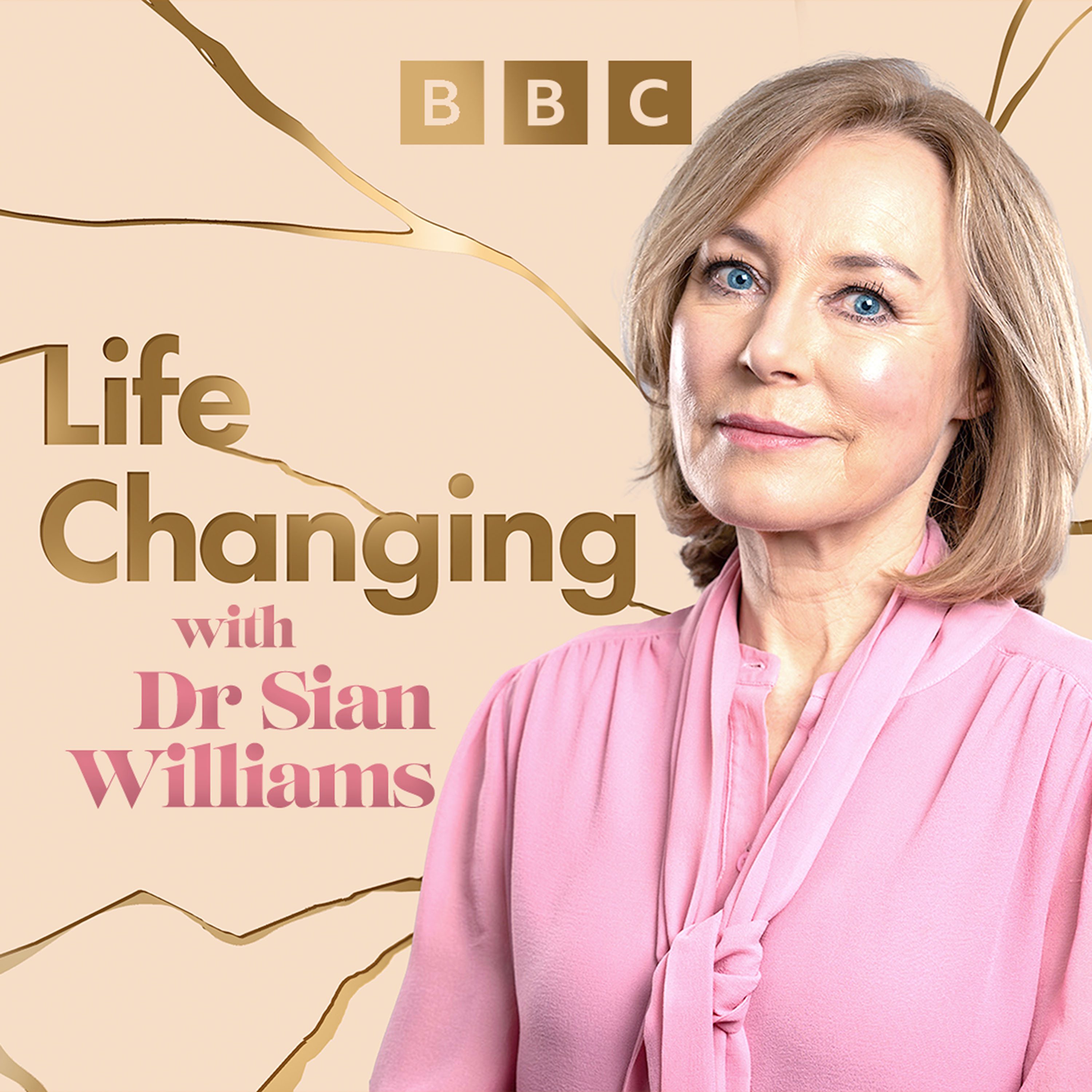
Life Changing
BBC Radio 4
Tech Life
BBC World Service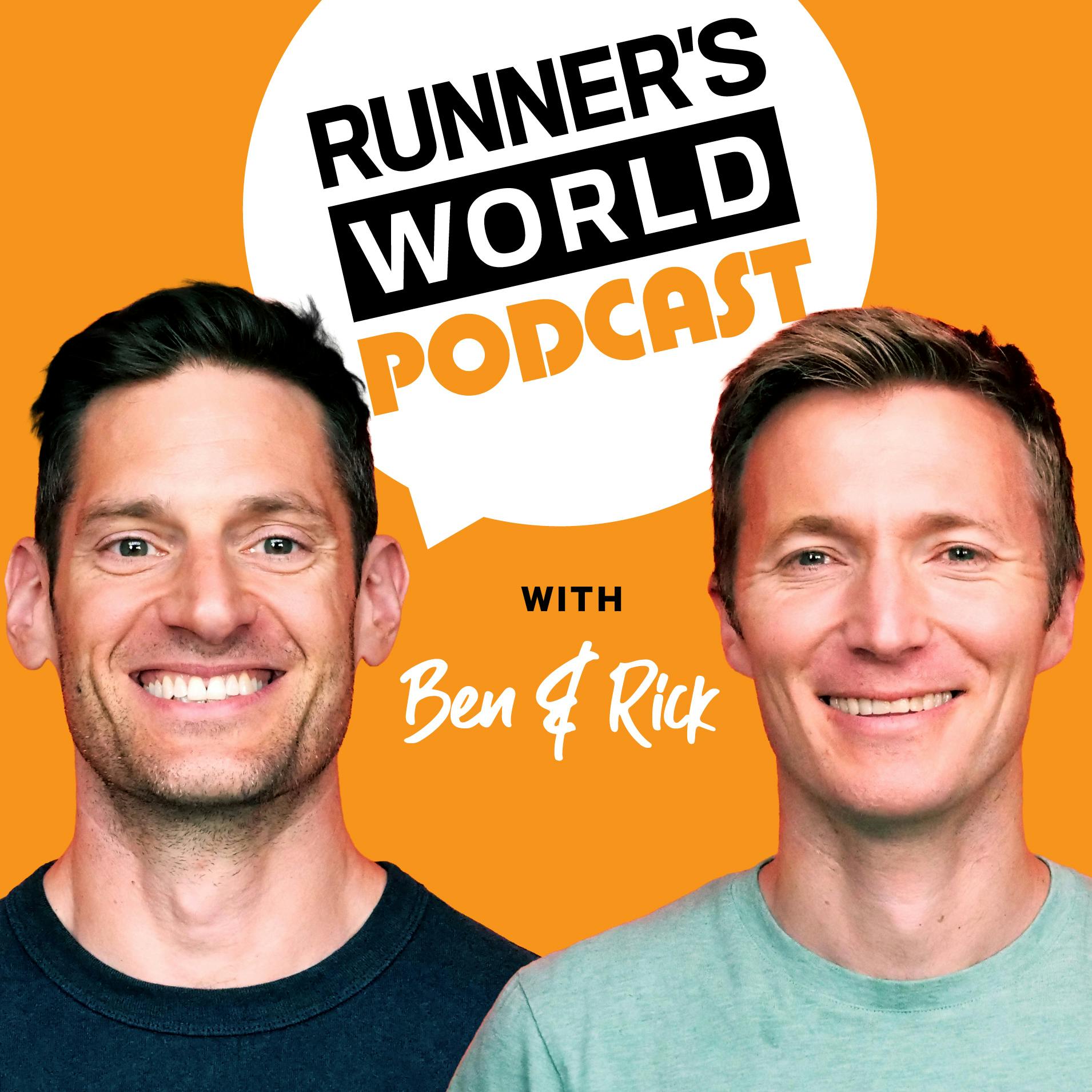
Runner's World Podcast
Runner's World UK
Buzzcast
Buzzsprout
Newscast
BBC News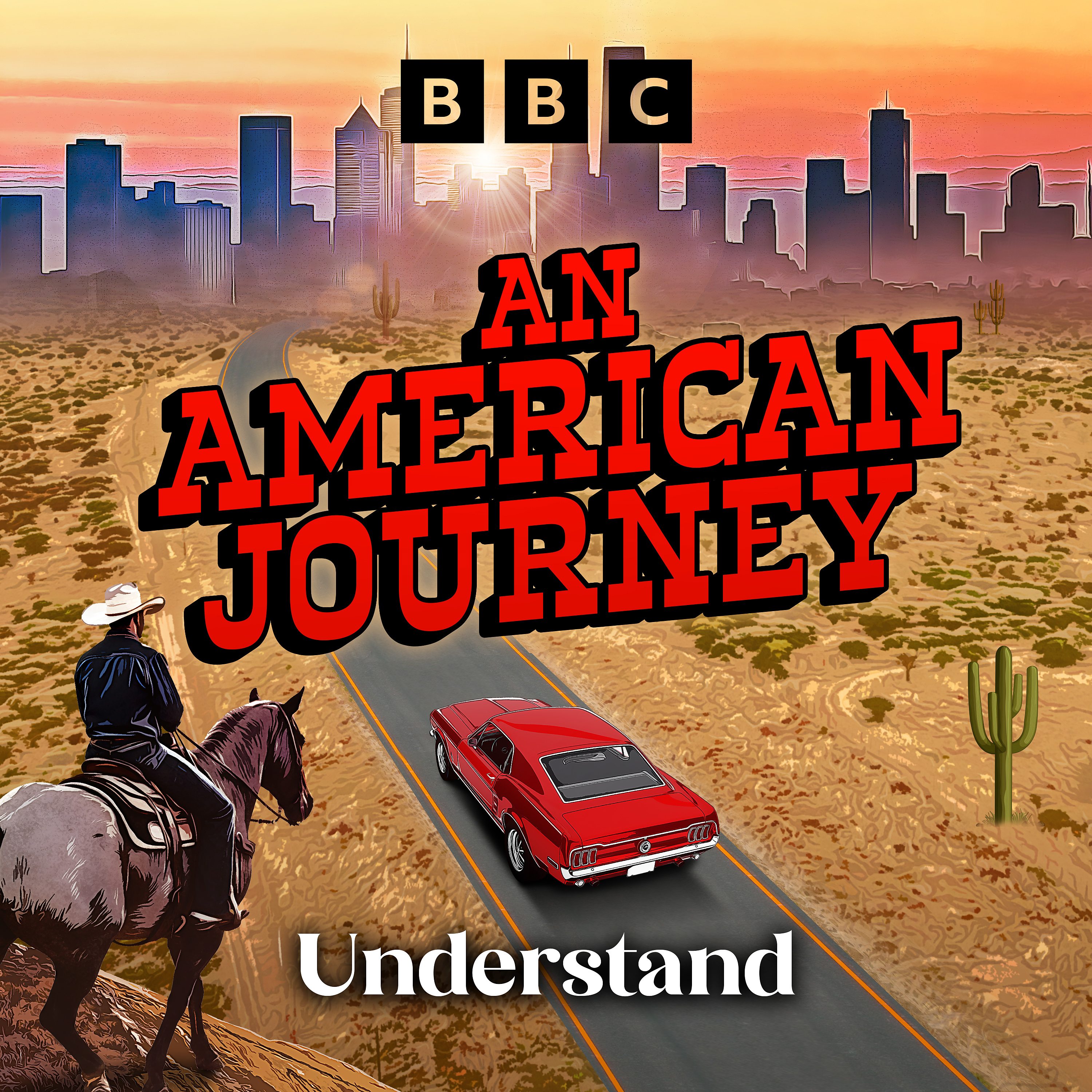
Understand
BBC Radio 4
Cyber Hack
BBC World Service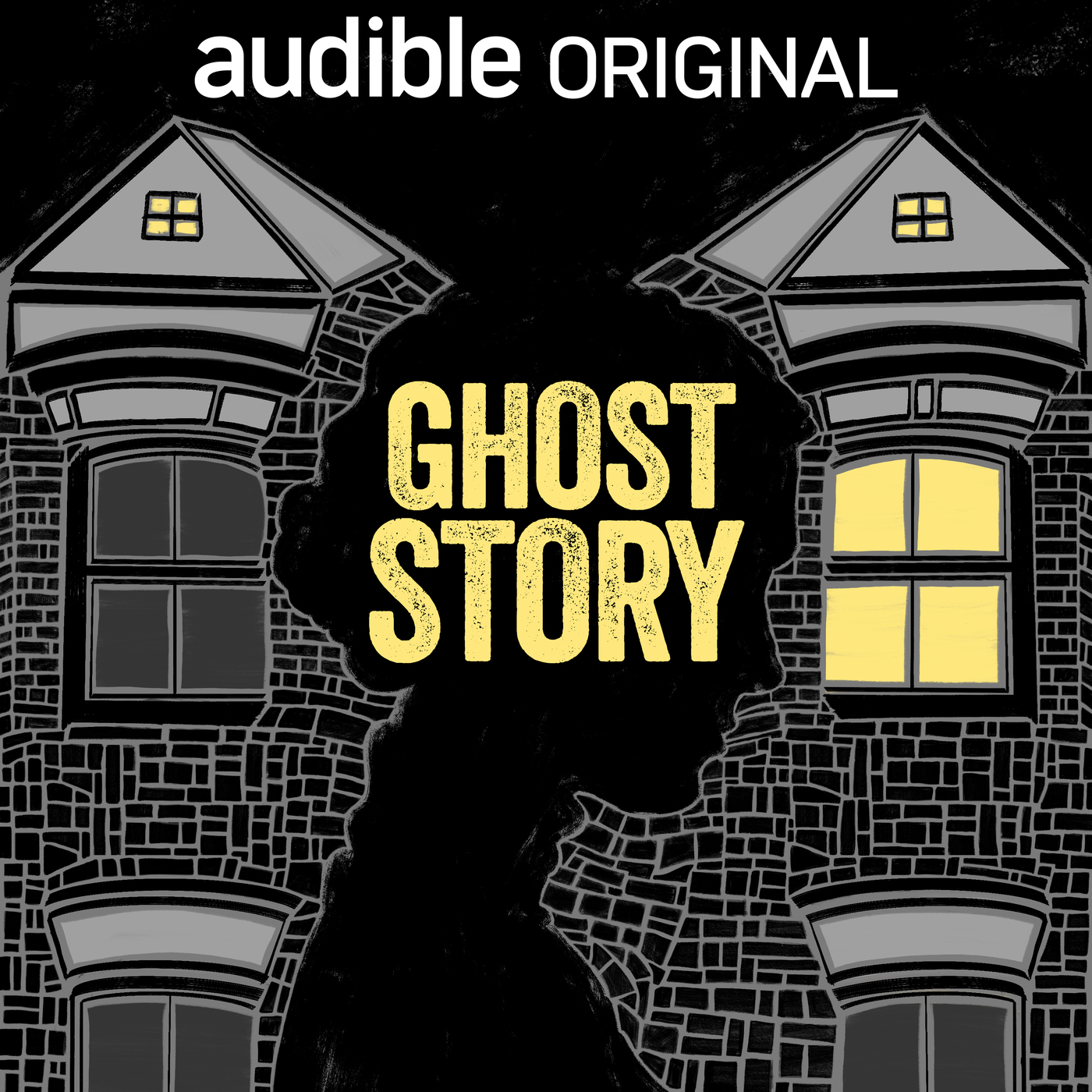
Ghost Story
Audible| Pineapple Street StudiosDiz Runs Radio: Running, Life, & Everything In Between
Join Denny Krahe, AKA Diz, as he talks with a variety of runners about running, life, and everything in between.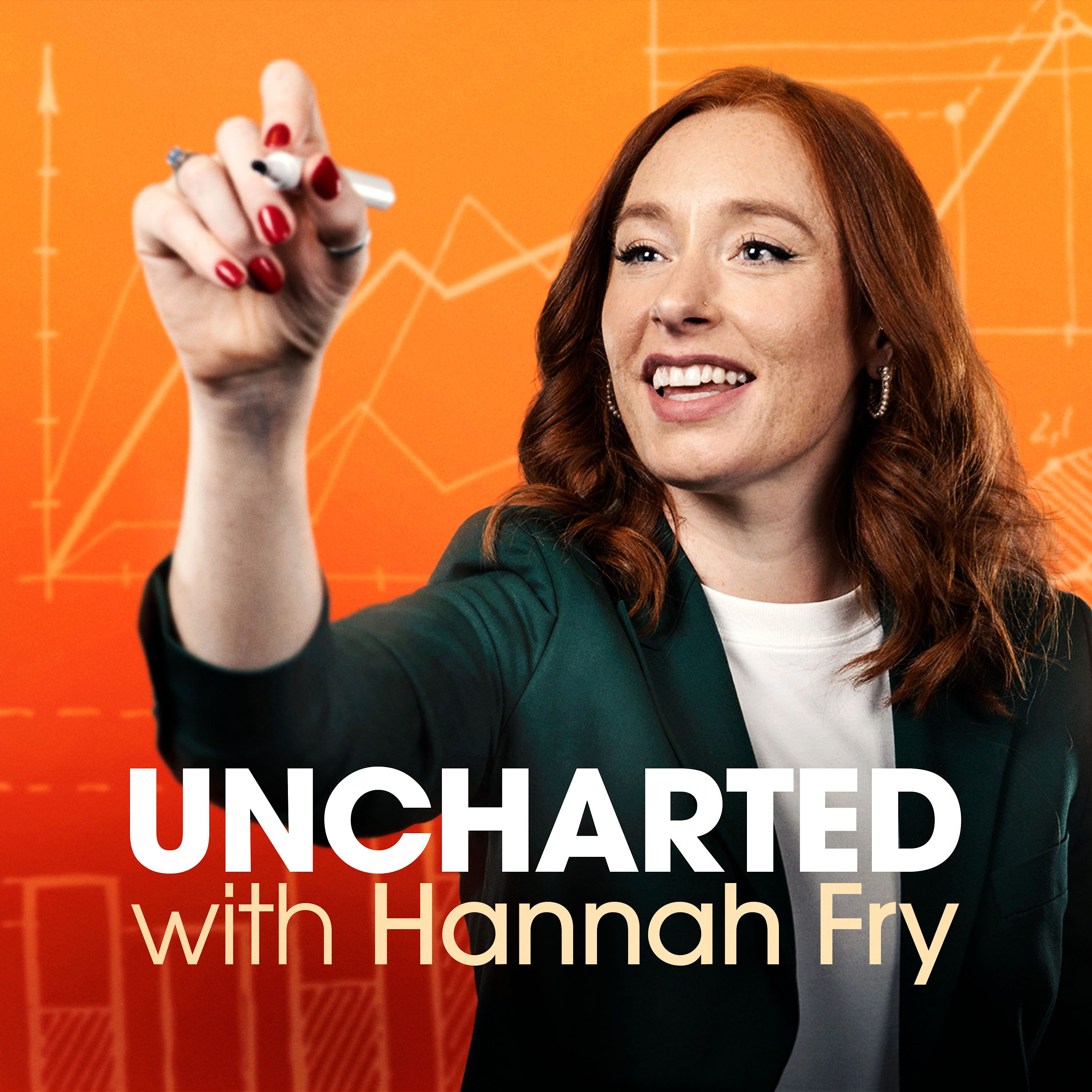
Uncharted with Hannah Fry
BBC Radio 4
The Global Story
BBC World Service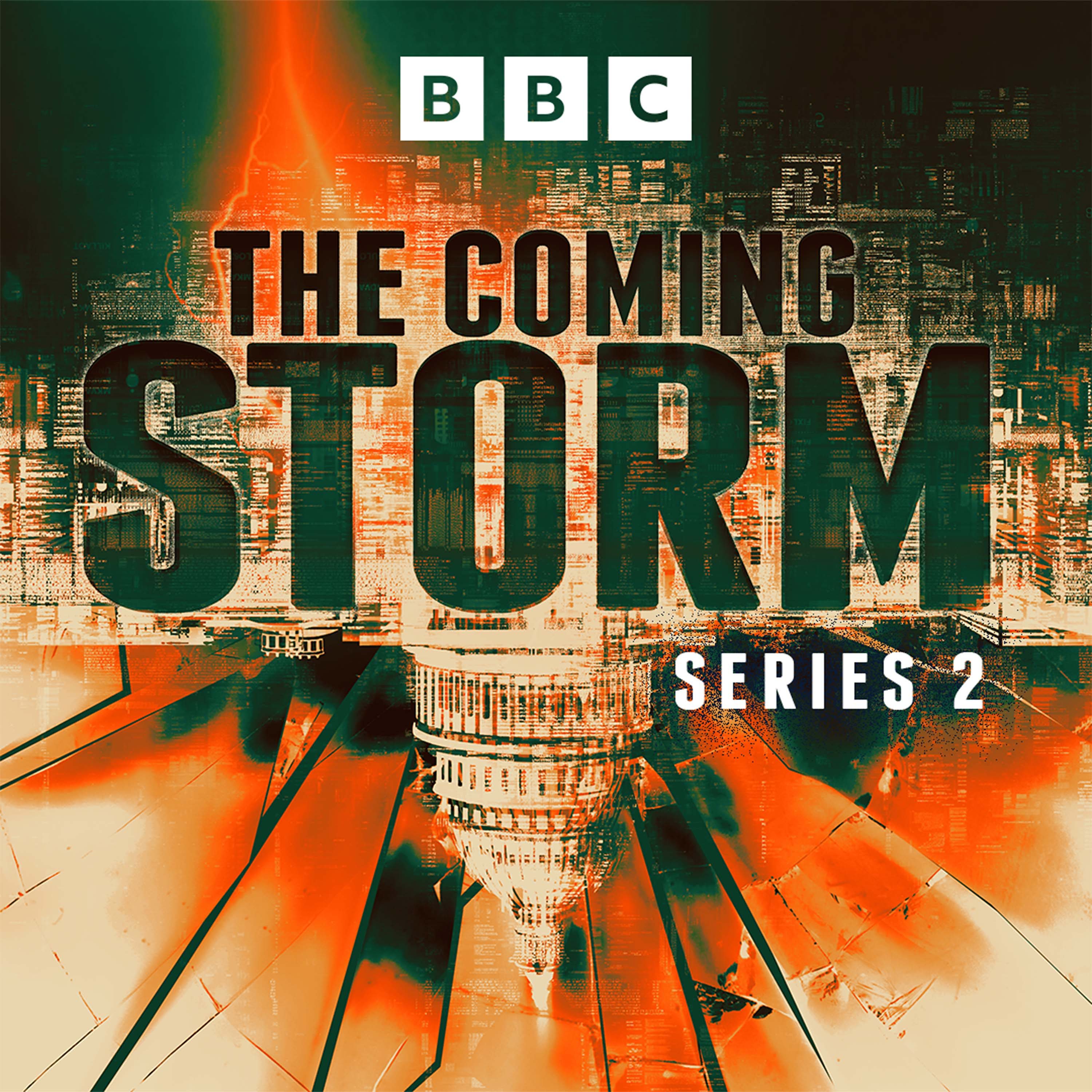
The Coming Storm
BBC Radio 4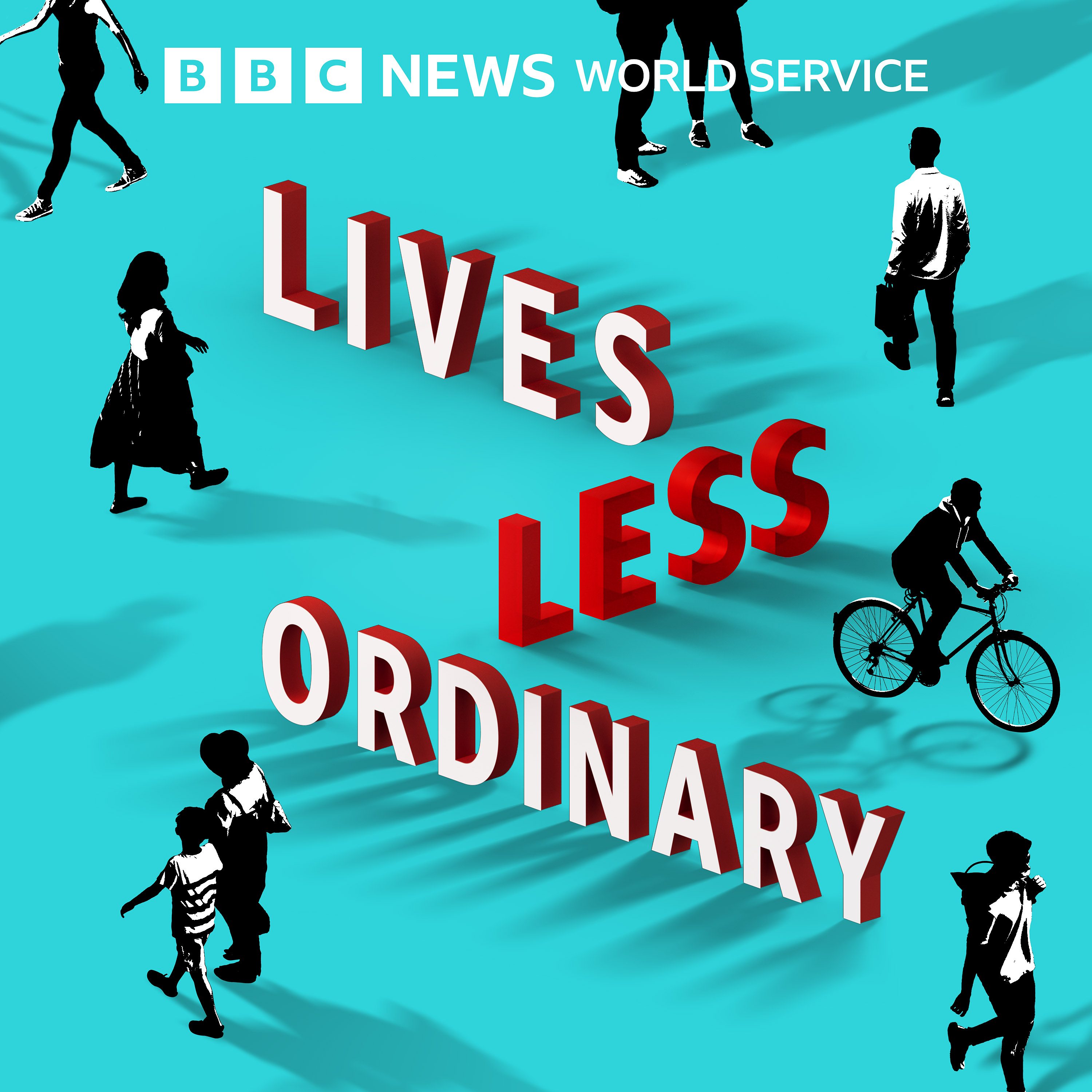
Lives Less Ordinary
BBC World Service
Do Epic Shit Today Podcast
Hannah Mulhern
The Rest Is History
Goalhanger
